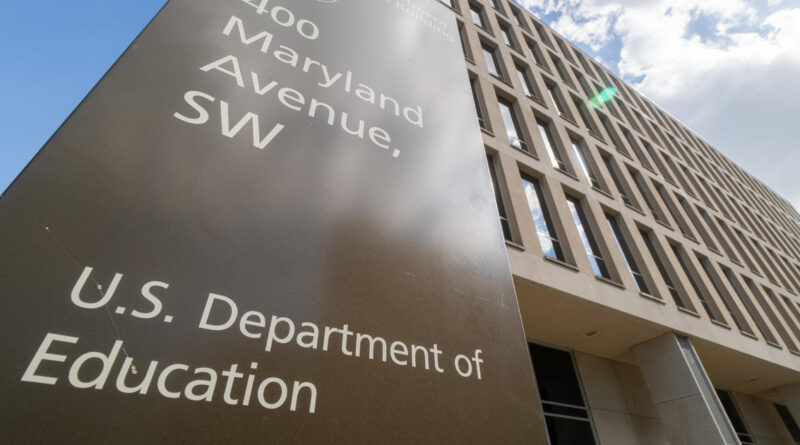Can Trump dismantle the Department of Education? It won’t be easy, experts say
President-elect Donald Trump promised during his campaign he’d shut down the Department of Education, complaining that the agency’s budget is too large and that its staff is filled with “people that in many cases hate our children.” In a September 2023 campaign video he accused schools of “indoctrinating young people with inappropriate racial, sexual and political material.”
“One thing I’ll be doing very early in the administration is closing up the Department of Education in Washington, D.C., and sending all education and education work it needs back to the states,” Trump said in the video.
Dismantling the department has been an unfulfilled, decades-long goal for some Republicans, dating back to its founding in 1980. It’s the first goal listed in the education section of Project 2025‘s “mandate for leadership,” a book that lays out a plan for Trump’s new administration. Trump has publicly disavowed the project, but its goals — and the people behind it — remain influential in his orbit.
The smallest of all Cabinet agencies, the Department of Education is responsible for distribution of federal financial aid for education, collecting and disseminating data and research related to schools, and prohibiting discrimination in schools. Its funds account for less than 10% of the nation’s public school funding, which is primarily driven by state and local taxes.
Shuttering the agency won’t be easy, according to Michigan State University professor Joshua Cowen.
“This is a real thing. They really want to do this,” said Cowen, a professor of education policy. “It’s more realistic than ever, but I don’t want to overstate the possibility. It’s going to be hard.”
Cowen said even though Republicans control both houses of Congress and the presidency, a wholesale closure of the Department of Education might not be palatable to some of the party’s legislators.
“They realize some of the things that the education department oversees and funds are popular,” said Cowen, adding that the Senate would need a 60-vote filibuster-proof majority to push through a bill to close the department.
Instead, he said, Republicans are likely to focus on rolling back funding for programs geared toward “equity, inclusion, or programs that could be particularly beneficial toward migrant communities” — lightning rod issues for conservative politicians.
Another target would likely be Title I funding, which provides school districts with funding geared toward low-income students, according to Columbia University professor Aaron Pallas.
“One thing that Project 2025 called for that is perhaps most doable and, and most threatening perhaps to local education agencies is a proposal to phase out federal funding for Title I, shifting that to be the responsibility of states and and local governments,” Pallas said.
Pallas said that plan also calls for many of the department’s responsibilities to be shifted to other federal agencies.
“It’s really just kind of rearranging in order to continue to provide congressionally mandated services to students. Even if the functions get moved to other agencies, there’s going to have to be people available to administer them,” Pallas said.
Trump also promised in the campaign video to “give all parents the right to choose another school for their children if they want.” But part of the calculus GOP legislators might need to consider is that enthusiasm for dismantling the Education Department may not be as widespread as they think. On Nov. 5, three states — including two where Trump won handily — rejected ballot measures that would’ve shifted money away from public education.
Voters rejected efforts in Kentucky, Colorado and Nebraska to strengthen school choice and voucher programs, in which state funds help foot the bill for parents who choose to forgo their local public schools.
“Rural Republicans have long resisted school choice schemes, especially vouchers, for the simple reason they just don’t have very many private schools in their districts,” said Cowen, whose book “The Privateers” examines the role of wealthy donors in politicians’ push for school voucher programs.
He said politicians who serve rural school districts might have one other big reason to avoid supporting legislation that strips away funding.
“I’m no Karl Rove or James Carville, but I know that you don’t get reelected by voting against the biggest employer in your district,” Cowan said.

